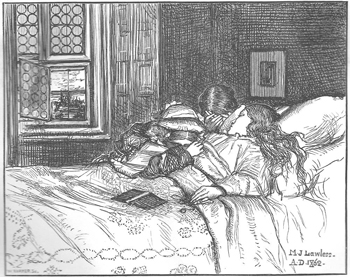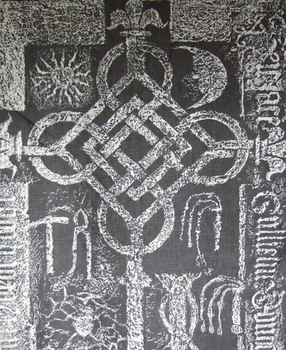

|
|
|
|
|
|

Hallo again to all. A co-worker at our place of secular employment recently died tragically and unexpectedly. It has left in a state of shock and sorrow all who had worked with her. Added to that, each person on her team now is coping with a sudden increase in workload with the parcelling out of her projects amongst the remaining people. It has felt overwhelming at times. One saving grace for our own mental state has been our engagement since Lent in a quiet and purposeful study about mortality. We began by reading Atul Gawande's book, Being Mortal.* In it, he writes of the way modern medicine in industrialized cultures has taken dying, a natural part of every life, and made it a medical problem to be 'solved'. Except, of course, at some point we just can't be 'fixed' anymore. Our physical selves will die eventually. The old saw of the two certainties in life being death and taxes comes to mind. Gawande writes: Our reluctance to honestly examine the experience of aging and dying has increased the harm we inflict on people and denied them the basic comforts they most need. Lacking a coherent view of how people might live successfully all the way to their very end, we have allowed our fates to be controlled by the imperatives of medicine, technology, and strangers.† The book resonated with us, and we highly recommend it to everyone we meet—including you, dear reader. It gave us helpful guidance and words with which to frame conversations with those we love about what is important for them as they face increasing difficulties through aging. It has caused us to reflect on our own future wishes before we are faced with daunting medical diagnoses. 
In May, the Church of England announced a new programme, GraveTalk, launched during Dying Matters Awareness week. GraveTalk provides 'resources for a café space in which churches provide a relaxed environment for people to explore questions about death and dying, funerals and loss'. The press release includes the statistic that the Church of England is the biggest single provider of funerals in England. 'We have been helping people to think about the big questions of life and death for generations. Our local clergy and lay people are a valuable source of support and help at every stage. Whether it is thinking about what hymns and readings you might want in your funeral service, or finding someone to listen during the painful journey of grief, a local church can play a big part in getting people talking about death and dying.'‡ GraveTalk gives the Church a way to bring discussions that might happen in a local meet-up of an often secular Death Café back into the religious sphere. And that is a very good thing. We want our church community to be a strong support as we each grapple with medical and health decisions impacting our independence, our health, our families. We are grateful the Holy Spirit led us to these resources earlier this year. And we hope you will consider reading Being Mortal. It gives one perspective on what is important at the end of our earthly time, and it would be an excellent choice for a small group book study. Take the time to participate in a GraveTalk event. And please share with us other resources you have found helpful. See you next week. |
||
This web site is independent. It is not official in any way. Our editorial staff is private and unaffiliated. Please contact editor@anglicansonline.org about information on this page. ©2015 Society of Archbishop Justus. Please address all spam to press@anglicansonline.org |